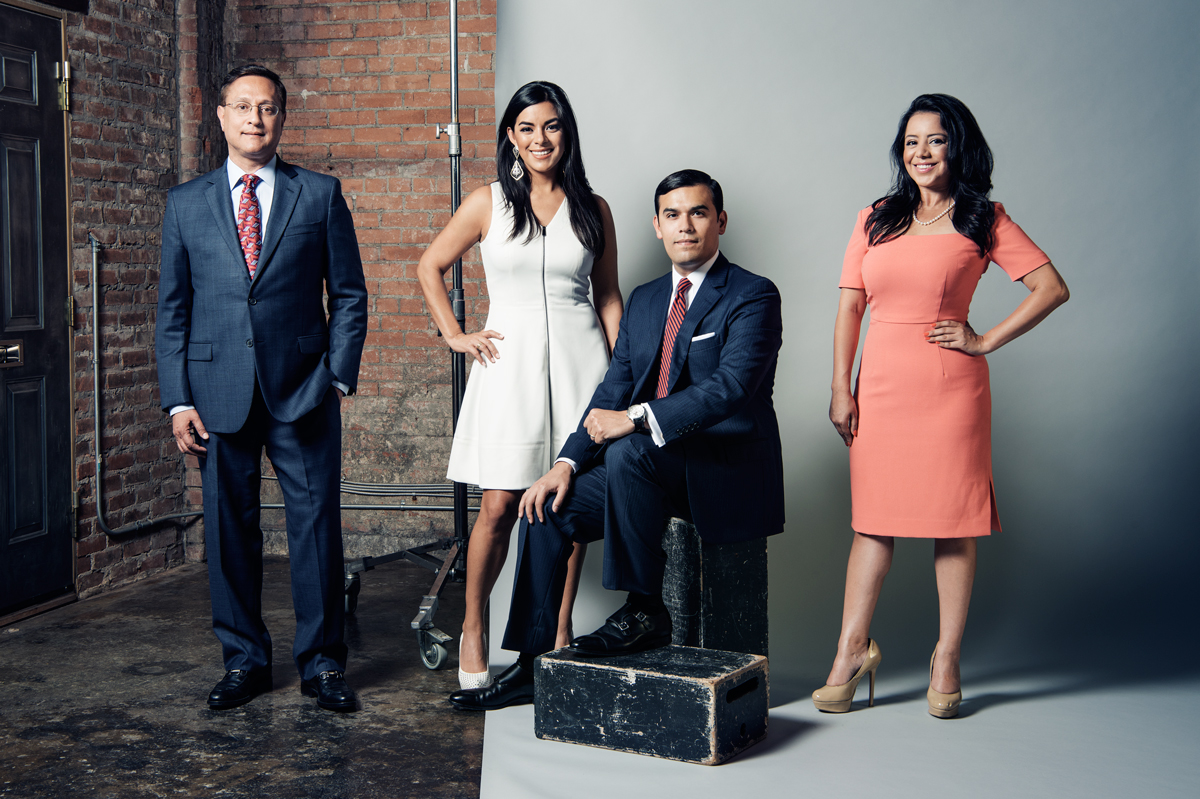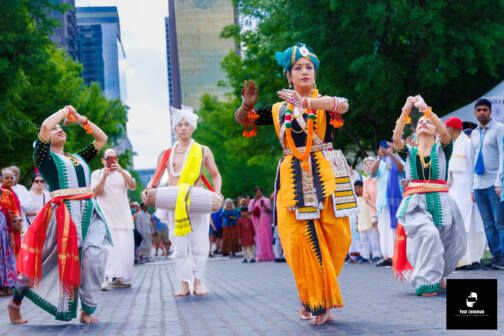The party had been going for some time when Elba and Domingo Garcia walked through the door of Taboo Lounge, a dimly lit club at the edge of the Design District, on Riverfront Boulevard. Hours of drinking were about to fuel hours of dancing, all in celebration of the first graduates of an academy run by the Latino Center for Leadership Development. At that moment, though, kudos were being delivered by LCLD’s power troika—founder Jorge Baldor, president Miguel Solis, and executive director Rebecca Acuña—to the four academy fellows (out of 14 total) who were running for public office. Check that: two of the fellows had already won their races, one would win a runoff race later that week, and the fourth was deep into a tough statewide race to be decided in November. These people were proof that the one-year-old organization could produce successful politicians, making North Texas less reliant on the three Hispanic families that have for so long presided over political dynasties. One of those families: the Garcias.
From a small stage, Baldor spotted Elba (former Dallas city councilwoman, current Dallas County commissioner) and Domingo (former state representative and Dallas city councilman). “And I see we need to recognize two people to whom we all owe a tremendous debt,” Baldor said. “Domingo and Elba Garcia! Without you and trails you blazed, we wouldn’t be able to do this work.” The couple waved to the crowd.
Baldor was performing a delicate dance: recognizing the old guard while simultaneously celebrating the people who could take their place. But if there was any acrimony at the party, it wasn’t apparent, even when libations loosened inhibitions, and everyone spoke freely and off the record.
“When we started this organization a year ago,” Solis, a Dallas ISD trustee, told me days later, “everyone warned me that I’d have to make sure I didn’t anger the powerful Latino families in town, that I’d have to kiss the rings, as it were. And I was prepared to do that, if it was necessary. But it wasn’t. They have been just as excited about what we’re doing as anyone.”
Generally speaking, the Latino political dynasties in Dallas are the Garcias, the Alonzos (a clan that includes city Councilwoman Monica Alonzo), and, of course, the largest and longest-standing Latino political family in town, the Medranos. They trace their political roots back to the 1950s, when patriarch Francisco F. “Pancho” Medrano became a well-known activist and groomed his family in the dark arts of winning local elections, which led to decades of seeing Medranos—Robert, Ricardo, Pauline, Adam—win seats on the DISD school board, Dallas City Council, and county positions. How long have the Medranos been the dominant family in Dallas-area politics? Consider this, from a profile of the family published in D Magazine more than 36 years ago:
“Critics of the Medranos, especially the upwardly mobile professionals in the Chicano community … have charged that the Medranos have become an institution unto themselves. They say that the Medranos do not really represent the Mexican-American community, but simply use it for their own political goals, duplicating the old Hispanic patron system, in which leaders ruled by birthright and power was retained by a single family for generations.”
Those criticisms are still heard from rival campaigns today, with opponents charging certain members of the clan with everything from standard political gamesmanship to vote brokering. (It should be noted that only once has a Medrano been convicted of voter shenanigans, with several being acquitted of similar charges, though one did plead guilty to perjury in a voting case. Councilman Adam Medrano and county treasurer Pauline Medrano have avoided suggestions of impropriety altogether.)
LCLD’s Solis insists the idea to create an organization to train new Latino leaders wasn’t about weariness with the Medranos or any other family. He says that for founder Baldor and him, it was more an acknowledgment of the simple math that shows the patronage system can’t be scaled to proportionately reflect the changing electorate. In 1990, Dallas County was home to 316,000 Hispanics. In 2000, that number more than doubled, to 663,000. In 2015? More than 1 million. Not only that, but the increasing Hispanic population statewide is growing younger. As of 2015, Texas’ over-65 group is 64 percent white, 22 percent Hispanic. Its under-19 population: 33 percent white, 49 percent Hispanic.
Discussing demographic shifts was the context to a critical lunch discussion at Cafe Brazil in Deep Ellum in the fall of 2013, during Solis’ first run for school board. Solis met Baldor—born in Havana, SMU graduate, until then somewhat apolitical and known mostly for running a successful background-screening service for landlords—to seek his support for Solis’ campaign. The numbers Solis shared about national and Dallas County Hispanic representation shocked Baldor, as did this: despite 72 percent of DISD’s 160,000 students being Latino, and despite 42 percent of DISD students speaking English as a second language (a huge majority of whom spoke Spanish as a first language), there were then no Hispanics on the school board. “We need to change this,” Baldor said. He charged Solis with figuring out how to do that, saying if he came up with the right plan, Baldor would fund it.
As he ran (and eventually won) his own campaign, Solis sketched out a plan with Baldor that would go beyond building a pipeline of leaders and ideas for the Latino community. The idea had three components: a year-long, nonpartisan leadership academy that identifies leaders ages 25 to 40 who want to make an impact for the Latino community in appointed or elected roles; a policy institute that looks for new approaches to address the challenges of a rapidly growing Latino population; and an arm to advocate for strategic initiatives that highlight issues affecting Latinos.
The Latino Center for Leadership Development was launched in March 2015, offering academy members a master class in governance and policy, as well as practical advice on running campaigns. (The first year’s academy featured 67 speakers, ranging from locals like Ron Kirk and Clay Jenkins to national players like former HUD secretary Henry Cisneros.) The immediate success of its academy graduates astonished even its own members. Claudia Sandoval won a seat on the Cockrell Hill City Council; Monica Lira Bravo bested her Dallas County Community College District trustee opponent in a runoff; and Jaime Resendez became the third Hispanic on the DISD school board. Lawyer Victoria Neave is trying to keep LCLD’s winning percentage at 100. She is gunning for the Texas House seat for District 107, which covers parts of East Dallas, Garland, and Mesquite. It’s a traditionally white and Republican area that is becoming more Latino and Democratic.
Neave is a former intern for state Rep. Rafael Anchia. He says people like her were too often discouraged from running for office because there was no infrastructure to help them build a campaign network. “LCLD acts like a chemical accelerant,” Anchia says. “We were producing leadership in ones and twos, not at scale. We might have been getting great Latinos in these seats eventually. Maybe. But LCLD creates a true pipeline for talent that gets these young, smart, qualified Latinos into seats now. And that’s when we need them, to better reflect the electorate. Not tomorrow. Now.” Anchia says the ripple effect from this success is that these bilingual, bicultural public servants will further engage a community that has been disconnected from civic engagement, helping Latinos in North Texas exert influence in proportion to their population.
Another outcome: imitation. In June, Paul Quinn College president Michael J. Sorrell announced the African American Leadership Institute will soon open on campus. It will advocate for public policy, produce scholarly research, and work with elected and community leaders to highlight important African-American issues. If it has even a small portion of the success enjoyed by LCLD so far, it will be seen as a brilliant idea.







